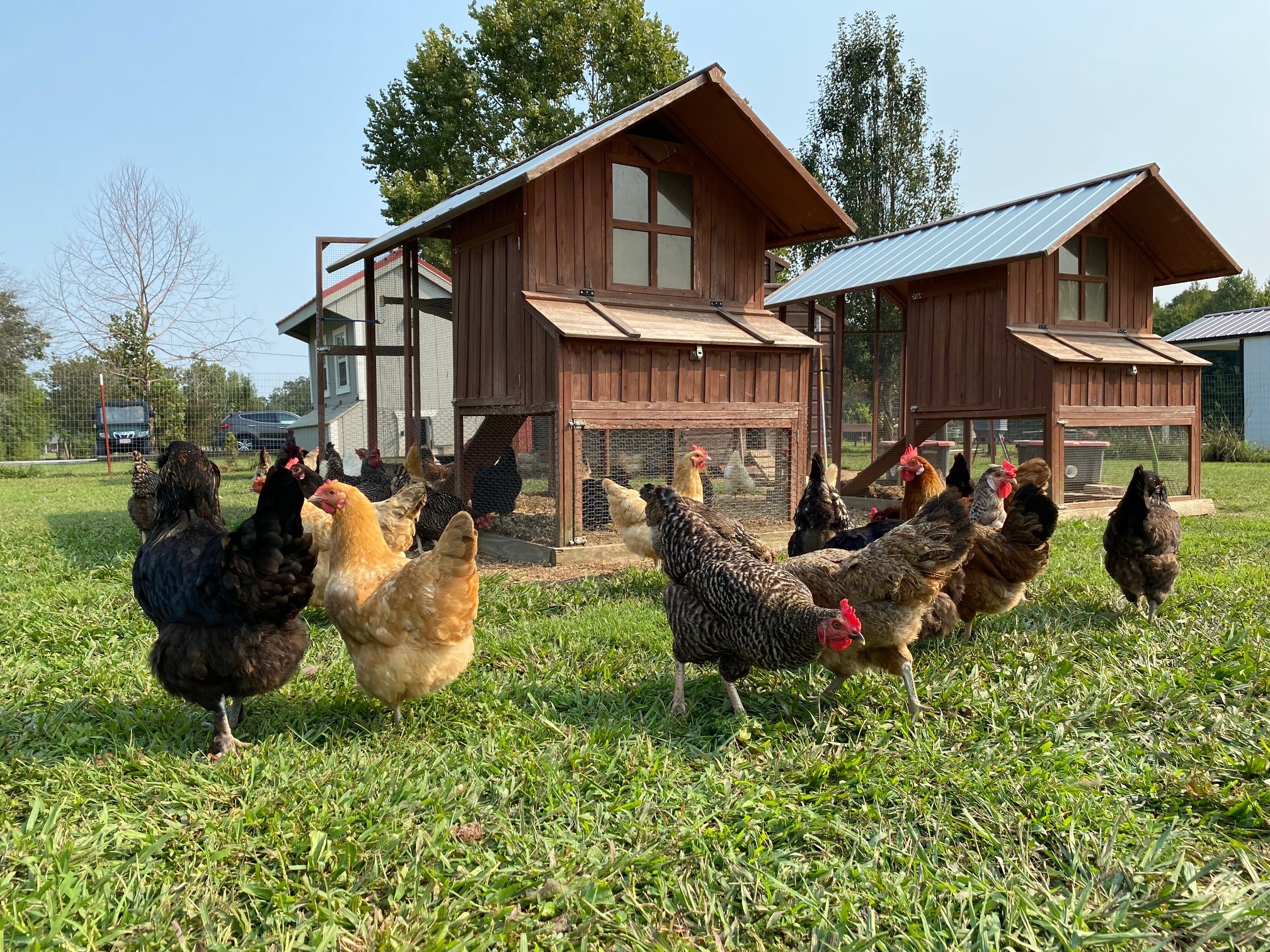Do you remember when it wasn’t so hard to buy eggs? We picked up a pink Styrofoam carton at the supermarket and assumed the eggs came from a chicken who was happily hopping around a farm somewhere. In those days, the labels on the cartons said “Extra-Large” or “Jumbo” – not confusing terms like “Cage-Free,” “Free-Range,” or “Pasture-Raised”!
We were wrong (and not just about supporting the use of Styrofoam… ugh, poor landfills). The eggs in the supermarket came from chickens that were likely not living in very humane conditions.
Now we have labels to help us make better choices when buying eggs. But the terms can be confusing, and you have to remember that most of them are marketing terms. Egg regulation has come a long way, but as the buyer, you still have to beware. Here is a breakdown of the terms and what they mean.
CAGE-FREE
A hen who is cage-free may not be confined to a cage, but that doesn’t mean she gets to go outdoors or has room to roam. These hens are typically kept indoors in large barns or warehouses which are only required to have one square foot of space per chicken. It’s important to remember this label does not imply specific animal welfare standards – the barns are often overcrowded. This leads to stress and aggression among the chickens. These hens are still confined for most of their lives, and their diet is not regulated.
FREE-RANGE
A free-range chicken has “access” to the outdoors. But the regulations are interpreted widely, and may only specify the minimum amount of outdoor space required per hen. There may be access to a door to the outside, but their time outside may be limited. Also, these chickens are quite often so overweight (from hormones and/or a fattening grain-heavy diet) that they don’t move around much. Sadly, they may not even try to go outside.
PASTURE-RAISED
For a chicken to be labeled pasture-raised, it must be able to graze outdoors year-round. Their diet is more natural, consisting mostly of grass, plants, seeds, and insects (although they may be given grain to supplement the diet). Pasture-raised chickens are able to express natural behaviors like scratching, dust bathing, exploring, and foraging. They are rotated on different pastures so that they have access to fresh grazing areas. In short, they get to act like chickens!
Some studies have shown that eggs from pasture-raised chickens contain more Omega 3’s, and higher levels of vitamins A, E, and possibly D. As if more humane treatment wasn’t enough of a reason to choose pasture-raised eggs, there’s another!
CERTIFIED HUMANE
In addition to choosing eggs from pasture-raised chickens, you can also look for the Certified Humane label. Humane Farm Animal Care (HFAC) is a non-profit organization that promotes kinder and more responsible farm animal practices. They only give the Certified Humane label to products that meet their specific animal welfare standards.
If you eat eggs, my very best advice is to find a local source. If you can, visit and see the chickens for yourself. I have a friend who raises chickens on her beautiful little hobby farm, and I have personally seen their cute, clean little houses and watched them run around freely in the sunshine. Can I just tell you, those eggs are the best I’ve ever had! Happy healthy chickens = better for you.
As with everything, be informed. Make the choice that’s right for you – and causes the least harm.
Like what you read? Then you’ll love The Scratching Post – my weekly(ish) newsletter packed with delicious recipes, brain-boosting tips, and a dash of life’s little quirks. It’s like a cozy catch-up over coffee … but in your inbox! Sign up here and let’s keep this fun going!

+ show Comments
- Hide Comments
add a comment